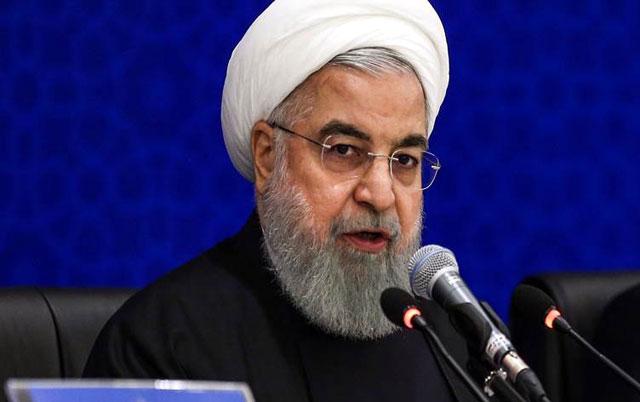- International News
- Thu-2020-06-11 | 04:11 pm

"We will reach a point... when, based on Resolution 2231, all arms embargoes on Iran will be lifted," said Rouhani
"The Americans are already angry and upset... and are preparing a resolution and want to bring it to the Security Council," he told a televised Cabinet meeting.
The ban on selling weapons to Iran is set to be progressively eased from October in accordance with UN Security Council Resolution 2231.
The weapons include battle tanks, combat aircraft, warships and missiles or missile systems, according to the resolution.
But a UN embargo on materials, goods, equipment and technology that Iran could use for its ballistic missile programme will remain in place until October 2023.
The European Union has said it will continue to enforce its own arms embargo against Iran after the lifting of the first UN embargo.
Resolution 2231 blessed the landmark international agreement reached in 2015 that placed limits on Iran's nuclear programme.
US President Donald Trump withdrew from the accord — known formally as the Joint Comprehensive Plan of Action (JCPOA) — in 2018 and began reimposing sanctions on the Islamic republic.
The United Nations Security Council includes among its 15 members five veto-wielding permanent members — Britain, China, France, Russia and the United States.
Rouhani appealed to those other than the United States to oppose its bid to extend the arms embargo.
"We expect the four permanent members to stand against this conspiracy, for global interests, global stability," he said.
"We especially expect [this from] our two friendly countries, Russia and China."
Washington said last week it had shared a draft resolution with Russia to extend the ban, with Moscow and Beijing having already voiced opposition to the measure.
"Russia and China need to join a global consensus on Iran's conduct," said Kelly Craft, the US ambassador to the UN.
"This is an absolute imperative that we exercise all our options to make certain that this UN arms embargo is extended."
Even though Trump has left the nuclear accord, his administration has argued that the US remains a participant under Resolution 2231 and can trigger UN sanctions for Iran's non-compliance with the 2015 deal.
Yet, according to the EU's top diplomat Josep Borrell, the US "cannot claim they are still part of the JCPOA to deal with this issue" after leaving it.
Iran, which has gradually scaled back its commitments to the accord in response to the renewed US sanctions, has dismissed the US argument as without any legal standing and warned that extending the embargo would mean the death of the nuclear accord.













